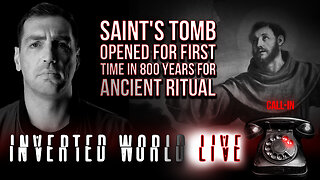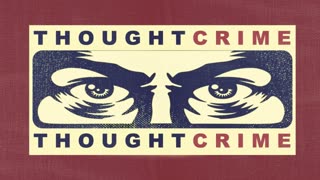Premium Only Content

Christmas Presence - "Herod - Scribes - Magi" - (Advent week 2 of 4)
CHRISTMAS PRESENCE – Three Responses to His Presence
Pastor Nathan Deisem - Fathom Church - Matthew 2:1-18
“King” Herod
The name Herod comes up again and again in the New Testament from Matthew 2 to Acts 26. A casual reader might think that Herod had tremendous longevity as a ruler. However, Herod is the family name of a ruling dynasty in Palestine. There are four different Herods in the New Testament as well as Herod Philip II, who is referred to as Philip the tetrarch in the New Testament.
Herod I came to be known as Herod the Great and was also called King of the Jews. He ruled from 37 or 36 BC to 4 BC. He is mentioned in the New Testament in Matthew 2. Magi from the East came to Jerusalem looking for the one who had been born King of the Jews. Of course, this would arrest Herod’s attention, as this was his title. Herod called the scribes and determined that, according to prophecy, the Messiah would be born in Bethlehem. As the magi left for Bethlehem to find the Messiah, Herod asked them to report back to him with the location of the newborn King “so that I too may go and worship him” (Matthew 2:8).
Of course, Herod had no such intentions. The magi find Jesus and worship Him, presenting their gifts to Him, but they are then warned by God in a dream not to return to Herod. When Herod realizes that the magi have not reported back to him, he is furious and calls for the slaughter of all the boys up to two years old in Bethlehem and the surrounding area, hoping to end the life of any potential rival. God warns Joseph that he needs to flee to Egypt with Jesus and Mary. Jesus is not harmed; however, there is a great slaughter of the innocents in and around Bethlehem (Matthew 2:16–18). Such is Herod the Great’s biblical legacy.
Herod the Great was the son of a high-ranking official in the Hasmonean dynasty, which was ruling Palestine as an independent kingdom. He was an Idumean or Edomite (a descendant of Esau), but there had been intermarriage between Jews and Edomites, and Herod publicly identified himself as a Jew, although he was not faithful to observe Jewish Law. In 41 BC Herod the Great was named governor of Galilee. However, the Jewish Hasmonean dynasty was in conflict with Rome, and Herod supported Rome in the conflict. He was given the title King of the Jews by the Roman Senate and then charged with the responsibility of conquering Judea so that he could rule as a client king. After about three years of fighting, Herod was victorious in 37 or 36 BC.
As king of Judea, Herod the Great’s primary directive was to carry out the wishes of Rome. As always, Rome wanted to maintain peace and foster good will among the local inhabitants who had been conquered. (If that didn’t work, Rome would eventually respond with overwhelming force.) Herod tried to foster good will by reducing taxes, enacting policies that helped bring about economic prosperity, and building public works including the incredible artificial port city of Caesarea, the fortress of Masada, and fortifications around Jerusalem. Herod also built a magnificent palace for himself atop a man-made mountain. The palace was called the Herodium.
In order to gain favor with the Jews, Herod the Great greatly enlarged and updated the temple in Jerusalem to a size and magnificence it had never enjoyed before, not even under Solomon. This renovated structure became known as Herod’s temple. He also married Mariamne, a Hasmonean princess, and appointed her brother as high priest.
Despite his brilliant and ambitious building projects, Herod the Great had a dark side that showed itself in the events of Matthew 2 and in other historical events. He always feared potential rivals. He had his wife’s brother Aristobulus, the high priest, drowned in the swimming pool in his palace. He put to death 46 members of the Sanhedrin. He killed his mother-in-law. He also had his wife Mariamne murdered along with two of their sons, as he considered them potential rivals with legitimate claim to the throne because of their Hasmonean lineage. (Herod had ten wives in all and many other children who did not have Hasmonean blood.) Augustus Caesar is reported to have said, “It is better to be Herod’s dog than one of his children.” When placed in this context, the incident in Matthew 2 does not seem out of character.
In BC 4, after a long and excruciating illness, Herod the Great died. This news was reported to Joseph by an angel of the Lord in a dream in Matthew 2:19, so Joseph knew it was safe to return to Israel with Jesus.
#FathomChurch #NathanDeisem #Advent
WEBSITE:
https://fathomcma.org
FACEBOOK:
https://www.facebook.com/fathomcma
TWITTER:
https://twitter.com/NathanDeisem
-
 2:19:50
2:19:50
Akademiks
4 hours agoDrake Lawsuit Dismissed by Federal Judge. What does it Mean.... for the boy.
122K9 -
 1:01:38
1:01:38
DeVory Darkins
14 hours ago $47.31 earnedSchumer suffers humiliation as critics applaud Trump's historic peace deal with Tim Pool
106K56 -
 56:09
56:09
Steven Crowder
19 hours agoBlack Fatigue is Real and I Told Them Why | Black & White on the Gray Issues
518K2.21K -
 2:05:36
2:05:36
Inverted World Live
11 hours agoSaint's Tomb Opened for First Time in 800 Years for Ancient Ritual | Ep. 121
98.2K18 -
 2:43:30
2:43:30
TimcastIRL
8 hours agoNY AG Indicted For FRAUD, Faces 30 Years In Prison, $1 MILLION FINE | Timcast IRL
223K107 -
 1:09:16
1:09:16
Man in America
18 hours agomRNA 2.0: This Frightening Tech Can Target Your BRAIN Using Biological Post Codes
57.9K22 -
 1:28:31
1:28:31
The Charlie Kirk Show
8 hours agoTHOUGHTCRIME Ep. 100 — Turning Point Halftime? Potatoes and Katie Porter? Hasan the Dog Shocker?
116K59 -
 6:33:19
6:33:19
SpartakusLIVE
10 hours agoNEW Update, NEW Meta || Zombies Mode is BACK - Smokes NURFED
69.5K5 -
 13:10
13:10
Robbi On The Record
8 hours ago $9.05 earnedThe War on Christians | China’s Surveillance & Nigeria’s Killing Fields
49.5K36 -
 1:24:49
1:24:49
Flyover Conservatives
1 day agoYour Home Just Became a Healing Room — The Truth About Red Light & Med Bed - Jonathan Otto | FOC Show
48.1K8